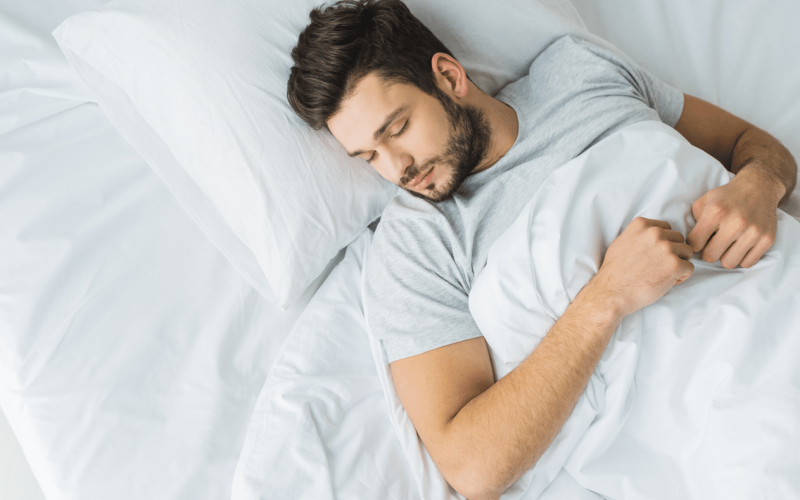Regular snoring can significantly reduce quality of life, especially when accompanied by obstructive sleep apnoea (OBS). Research reports that sleep-disordered breathing has serious socio-economic consequences both for the snorer and, more broadly, for society as a whole.
Impact of snoring and apnoea on social and personal relationships
Snoring, accompanied by apnoea, makes sleep ineffective and therefore does not fulfil its function – it does not regenerate the body sufficiently, causing a feeling of fatigue and excessive sleepiness during the day. The consequences of snoring may also include: lowered mood, anxiety, cognitive disorders, personality changes. People with untreated obstructive apnoea may develop depression. Such people often receive psychiatric treatment for years before anyone realises they are suffering from OBS. Depression makes it difficult to maintain relationships. People with sleep-disordered breathing are less likely to engage in social activities, especially those requiring physical exertion.
Problems also arise in relationships due to loud, disruptive snoring. Partners of snorers often choose to sleep in separate bedrooms. According to estimates – a snoring bed partner steals nearly two years of sleep after 24 years of sharing a bedroom. So partners are also at risk of experiencing the negative effects of snoring, which can affect their quality of life. They are also accompanied by fear for the lives of loved ones with OBS and fear of them dying unexpectedly in their sleep. Notoriously sleep-deprived people (both snorers and their companions) are more irritable, prone to arguments, and close relationships can suffer as a result.
Lack of quality sleep due to snoring can also negatively affect sex life. Chronic sleep-disordered breathing can cause a decrease in libido in both sexes and, in men, erectile dysfunction and even impotence.
The economic impact of snoring
People with untreated OBS are more likely to develop not only depression, but also a number of systemic conditions, including: hypertension, ischaemic heart disease, cardiac arrhythmias, and stroke, making them more likely to be hospitalised, resulting in higher healthcare costs. The total economic cost of moderate to severe OBS in the United States is estimated to be between $65 and $165 billion annually.
Untreated OBS, which contributes to the development of comorbidities, has serious consequences for the labour market, the pension system and social security. There are increased medical costs, but also costs resulting from lost profit. Patients with OBS are more likely to take sick leave. As a result of excessive sleepiness, their productivity at work and creativity decrease. Higher levels of sleepiness are associated with greater difficulties in time management, productivity and mental-interpersonal performance. This can affect personal interactions at work and promotion opportunities. People with OBS have difficulty maintaining a job.
A large 2014 study in Denmark found that apnoea patients require two to three times more money for medication and hospital care, more than double their total healthcare costs and have a lower employment rate. Consequently, they require much higher social benefits than healthy people. The earnings of people with OBS participating in this study were two-thirds the amount of those in the control group.
Excessive daytime sleepiness and traffic accidents
The consequence of excessive sleepiness in drivers, which is one of the most common symptoms accompanying OBS, is traffic accidents. People who snore and suffer from obstructive sleep apnoea can fall asleep while watching TV, reading, talking on the phone, eating or even driving, which is particularly dangerous for them and other road users. People with OBS are up to ten times more likely than healthy people to be involved in a car accident as a result of drowsiness, often with fatal consequences. The same relationship applies to accidents in the workplace, which can result in injury and disability.
More frequent diagnosis and effective treatment of sleep apnoea could significantly minimise its negative social and economic impact. The Clebre sensor has been designed precisely to facilitate the diagnosis of breathing disorders during sleep. The device is designed for home use and the results, which are recorded in an intuitive app, can be transmitted to a doctor. A small sensor accurately monitors sleep and detects any abnormalities, including obstructive apnoea. This tool offers the possibility to effectively diagnose sleep disorders even in large groups of patients without referring them to hospital for polysomnography tests.
Sources:
http://healthysleep.med.harvard.edu/sleep-apnea/living-with-osa/persona-societal
https://thorax.bmj.com/content/66/7/560.long
https://www.sciencedirect.com/science/article/pii/S1087079220300186
https://erj.ersjournals.com/content/43/1/134.long
https://kosmos.ptpk.org/index.php/Kosmos/article/view/1213/1192
